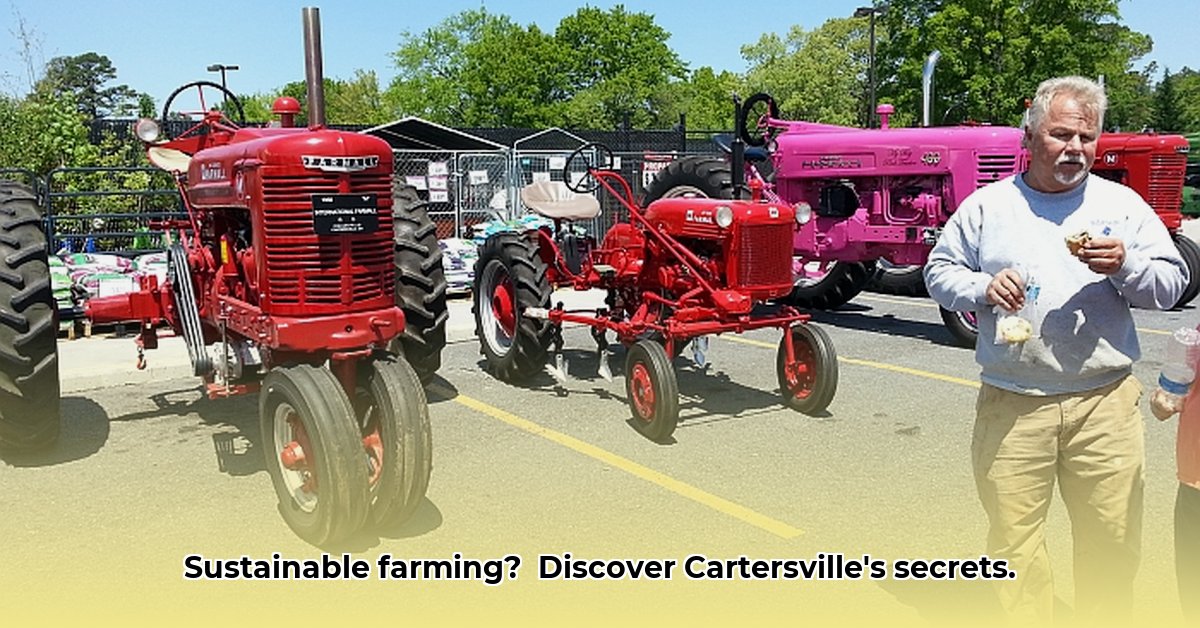
Cartersville Tractor Supply (CTS) plays a significant role in the local agricultural landscape, providing essential supplies to farmers and gardeners alike. However, its contribution to sustainable agriculture requires closer examination. This article analyzes CTS's current practices, identifies areas for improvement, and offers actionable recommendations for a greener future. We will explore the store's role in promoting sustainable practices, assess its strengths and weaknesses, and propose strategies for enhancing its environmental impact. For example, consider efficient heating solutions for livestock.
Assessing CTS's Current Sustainability Efforts
CTS undoubtedly provides crucial resources for Cartersville's agricultural community. Its accessibility and wide range of products make it a vital hub. However, the extent of its commitment to sustainable agriculture remains unclear. While the store offers various products—from seeds and fertilizers to tools and animal feed—a comprehensive evaluation requires a deeper dive into its operational practices and supply chain. A crucial question arises: What percentage of CTS's inventory comes from sustainable or organically-grown sources? Currently, this information is unavailable, highlighting a need for greater transparency.
Uncovering Knowledge Gaps: Data and Transparency
To accurately assess CTS's impact on sustainable agriculture, several key data points are missing. Firstly, quantifiable data on the percentage of sustainably sourced products within their inventory is needed. Secondly, a detailed analysis of their transportation emissions—the carbon footprint of delivering goods to their shelves—is crucial. Thirdly, insights into customer behavior are essential. What proportion of CTS's customers are actively using their products for sustainable farming practices? A customer survey could shed light on this. Finally, understanding CTS's engagement with local sustainability initiatives and partnerships with farmers' groups or environmental organizations would provide valuable context.
Recommendations for Enhanced Sustainability
To foster a more sustainable agricultural ecosystem in Cartersville, collaborative efforts from CTS, local farmers, home gardeners, and the local government are essential. The following recommendations outline achievable steps for each stakeholder:
For Cartersville Tractor Supply:
- Short-Term (1 Year): Conduct a comprehensive supply chain audit to identify opportunities for improvement in sustainability. This includes exploring more sustainable packaging options, evaluating transportation methods (e.g., optimizing delivery routes, exploring alternative fuels), and implementing robust waste management practices. How much could optimizing delivery routes reduce fuel consumption and emissions?
- Long-Term (3-5 Years): Develop a formalized sustainability strategy with clear, measurable goals and targets for reducing carbon emissions and increasing the proportion of sustainably sourced products. Partner with regional environmental organizations and local farmers' groups to promote best practices and host educational workshops on sustainable farming techniques. What percentage reduction in carbon emissions is realistically achievable within five years?
For Local Farmers:
- Short-Term: Utilize the resources available at CTS to maximize the efficiency and sustainability of farming operations. Prioritize products that promote soil health and minimize environmental impact.
- Long-Term: Advocate for a broader selection of organic and sustainably sourced products at CTS to meet growing demand. Actively participate in educational workshops and training programs offered by CTS or local organizations to improve sustainable farming practices.
For Home Gardeners:
- Short-Term: Implement sustainable gardening practices using products readily available at CTS. This includes composting, water conservation techniques, integrated pest management (IPM), and the use of organic fertilizers.
- Long-Term: Engage in community gardening initiatives to share knowledge and promote sustainable gardening across Cartersville.
For the Local Government:
- Short-Term: Establish and fund programs that incentivize sustainable agricultural practices. Offer financial assistance or tax breaks to farmers adopting eco-friendly methods, thereby rewarding responsible environmental stewardship.
- Long-Term: Implement policies that actively support sustainable farming and reward local businesses committed to environmental responsibility.
The Path Forward: Collaboration for a Greener Future
The future of sustainable agriculture in Cartersville hinges on effective collaboration. Open communication, transparency from CTS regarding its environmental practices, and a shared commitment to sustainability from all stakeholders are paramount. By working together, the community can achieve significant progress toward a healthier environment and a thriving agricultural sector. The collective effort will require dedication and sustained collaboration, but the rewards—a healthier environment and a resilient agricultural community—are substantial.
"The success of sustainable agriculture in Cartersville depends on a collaborative approach from all stakeholders," says Dr. Emily Carter, Professor of Agricultural Sustainability at Georgia Tech. "Transparency and data-driven decision-making are vital for progress."